Things Are Changing Here, Too
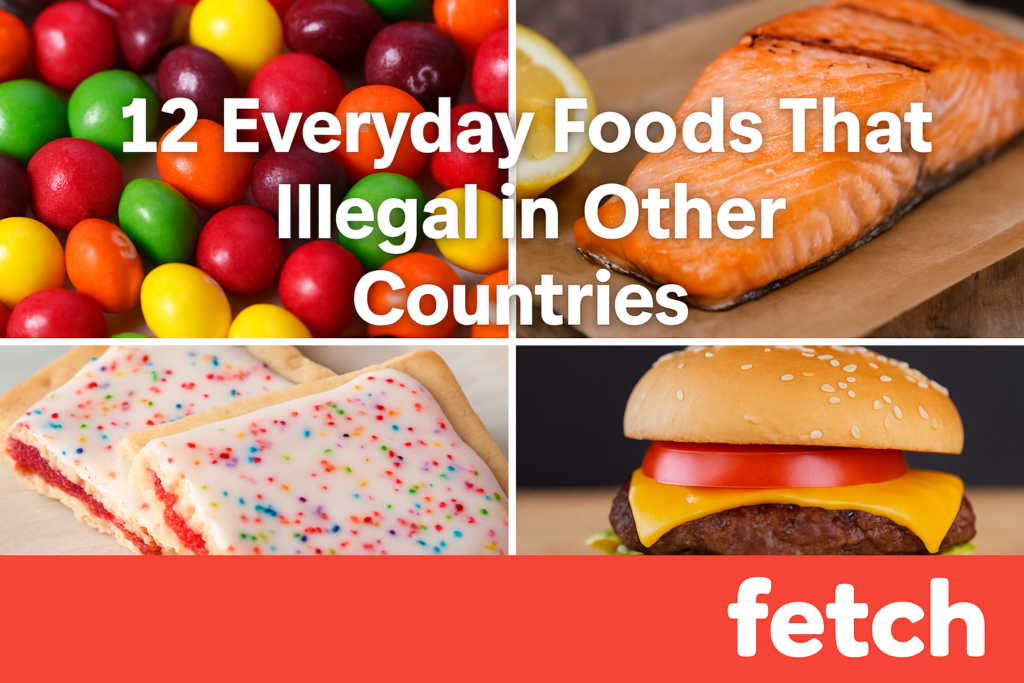
While these foods are banned or restricted abroad, things may be shifting in the U.S. too. As more research surfaces and consumer awareness grows, American regulators and brands are facing increased pressure to reevaluate what’s on our shelves. From ingredient bans to reformulations, the U.S. food landscape is beginning to reflect global concerns about additives, dyes, and ultra-processing. So while Skittles and Mountain Dew might still be legal here for now, the tide may be turning—and some of these once-standard pantry staples could soon face a very different future at home.
1. Skittles – Taste the Rainbow… Unless You’re in Norway
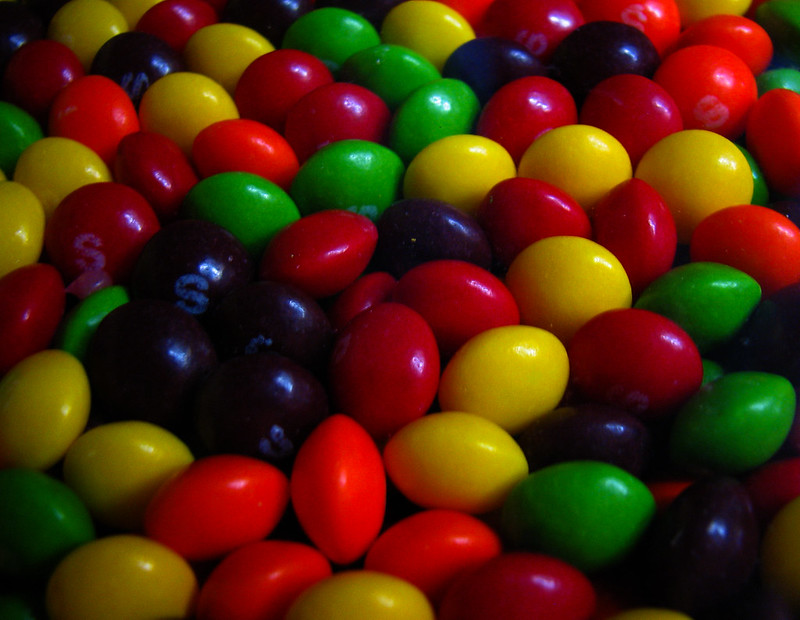
If you’ve ever tossed back a handful of Skittles while binge-watching your favorite show, congrats, you’re doing something illegal in Norway and Austria. These colorful candies contain food dyes like Yellow 5 and Red 40, which are banned in several European countries due to potential links to hyperactivity and behavioral issues in children. Apparently, “tasting the rainbow” comes with side effects. While the U.S. FDA has cleared them for use, other countries take a stricter stance on what goes into candy. So yes, those innocent little sugar bombs are considered a little too wild for certain global palates. If Skittles had a passport, it would probably be flagged at customs. Source: The Spicy Chef
2. Frosted Flakes – Banned in the EU for a Vitamin Overdose
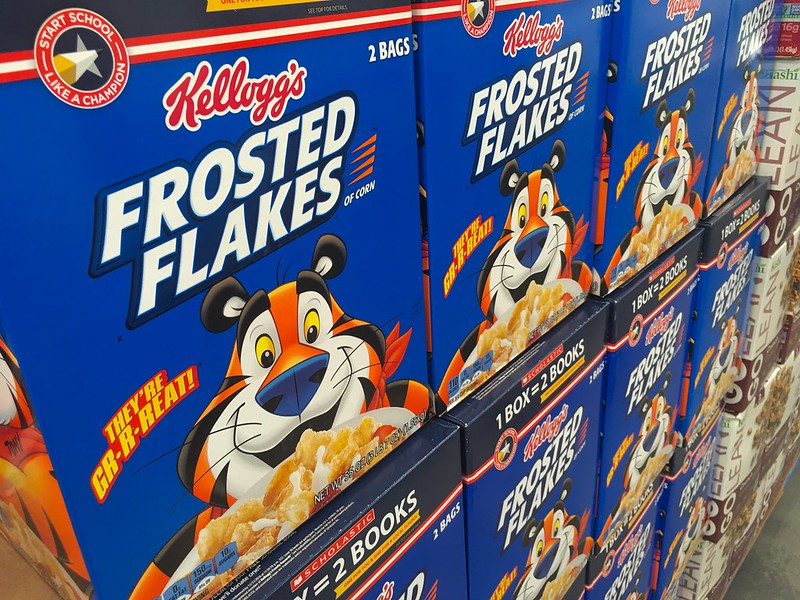
Tony the Tiger might be grrrreat in America, but he’s straight-up banned in the European Union — at least the artificially fortified kind. Frosted Flakes and similar cereals are pumped full of synthetic vitamins like B6 and B12, which the EU considers excessive and potentially dangerous in high quantities. Yes, your childhood breakfast is too healthy (ironically) for European regulators. They say over-supplementation could harm kids’ livers or disrupt hormonal development. Meanwhile, in the U.S., we’re out here pouring sugar-frosted crunch into our milk like it’s a public service. Who knew your 8 a.m. cereal could qualify as contraband overseas? Source: Paste Magazine
3. Farm-Raised Salmon – Not on Japan’s Sushi Menu
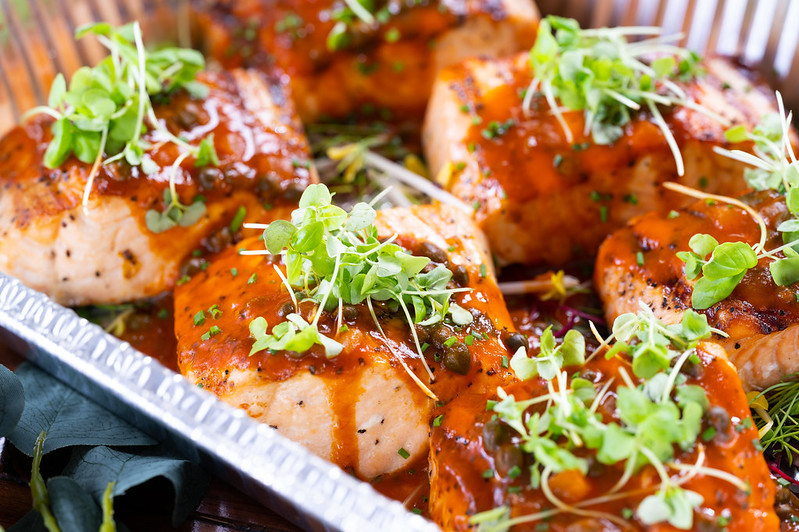
Farm-raised salmon may be a budget-friendly dinner option in the States, but in countries like Australia and Japan, it’s a hard no. These salmon are often dyed pink (yes, really) to mimic the color of wild salmon, since their farm diet leaves them looking a little gray and sad. Some farms also use antibiotics and questionable farming practices that international regulators aren’t too fond of. Japan, a country that treats fish like sacred art, says “no thanks” to the fake flamingo fish. While Americans are throwing it on bagels and calling it brunch, other countries are banning it for being the seafood version of catfishing. Sorry, salmon, you can’t fake fabulous everywhere. Source: Paste Magazine
4. Mountain Dew – Banned in the EU and Japan for Flaming Chemicals
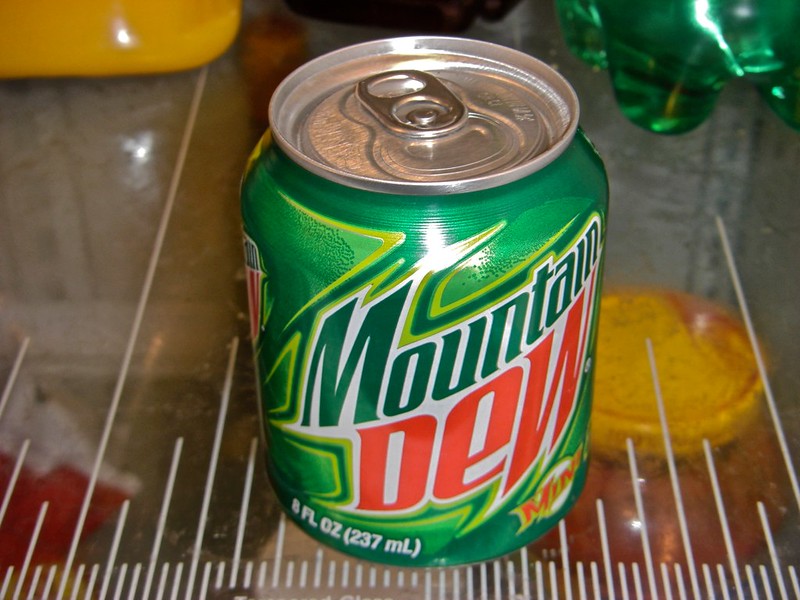
Your favorite neon-green gamer fuel contains an ingredient called brominated vegetable oil (BVO), which is also used as a flame retardant. Yes, your soda may double as fireproof insulation — which explains the aftertaste. While still legal in the U.S. (though being phased out), this chemical cocktail is banned in the European Union and Japan for potential health risks like memory loss and skin irritation. That iconic citrus punch suddenly seems a little more suspicious, doesn’t it? Americans still chug Mountain Dew by the case, especially in extreme sports commercials, but in other countries, it’s seen as a walking health hazard in a bottle. Bottom line: if your drink glows in the dark, maybe it shouldn’t. Source: Ranker.com
5. Kinder Surprise Eggs – Illegal in the U.S. for Being Too Much Fun
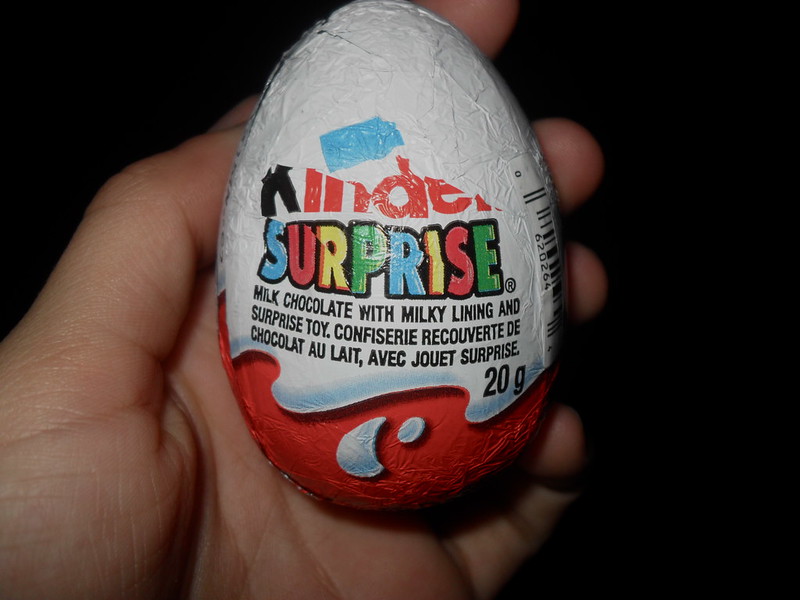
Americans can’t have Kinder Surprise, not because of what’s in the chocolate, but what’s inside the chocolate. The original version contains a small plastic toy hidden inside, and that’s a no-no in the U.S. because of choking hazards. The FDA actually classifies it as an “illegal food item” due to the 1938 Food, Drug, and Cosmetic Act, which bans embedding non-edible objects in edible products. Meanwhile, European kids have somehow survived these eggs for decades without an uprising. If you’re caught smuggling one into the U.S., you could be fined, yes, fined over a chocolate egg. Kinder Joy is the American-approved substitute, but let’s be honest: it’s just not the same.
6. Maraschino Cherries – Banned in France for Being Too Artificial
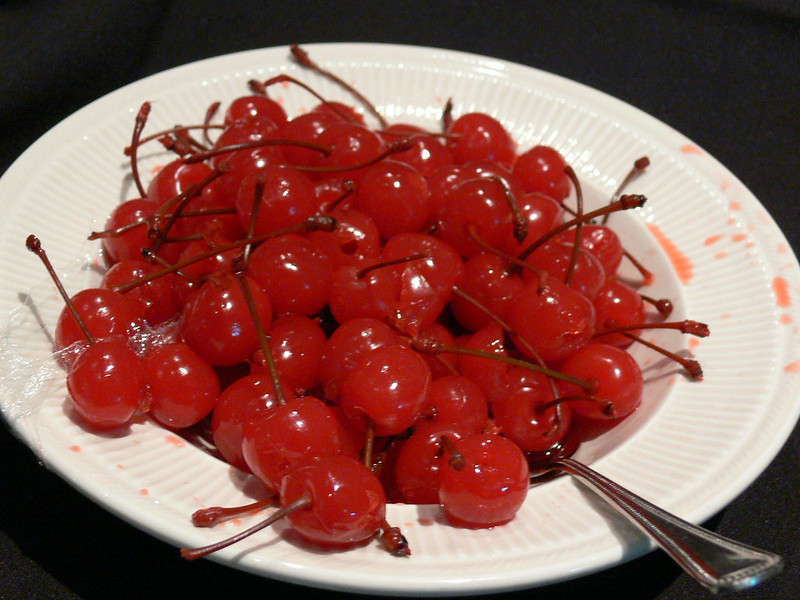
Those glossy red cherries topping your sundaes and cocktails? Yeah, they’re persona non grata in France. Maraschino cherries are soaked in a chemical cocktail that includes Red Dye #40 and lots of high fructose corn syrup, ingredients that make French food purists cringe. In France, food is either elegant or illegal, and these radioactive-looking cherries didn’t make the cut. They’re banned due to their artificial coloring and excessive processing, which don’t align with strict European food safety standards. Americans see them as harmless garnish; the French see them as synthetic sins in a jar. If your fruit can survive a nuclear blast, maybe it’s not really fruit anymore.
7. Ractopamine-Treated Pork – Not Welcome in China or the EU
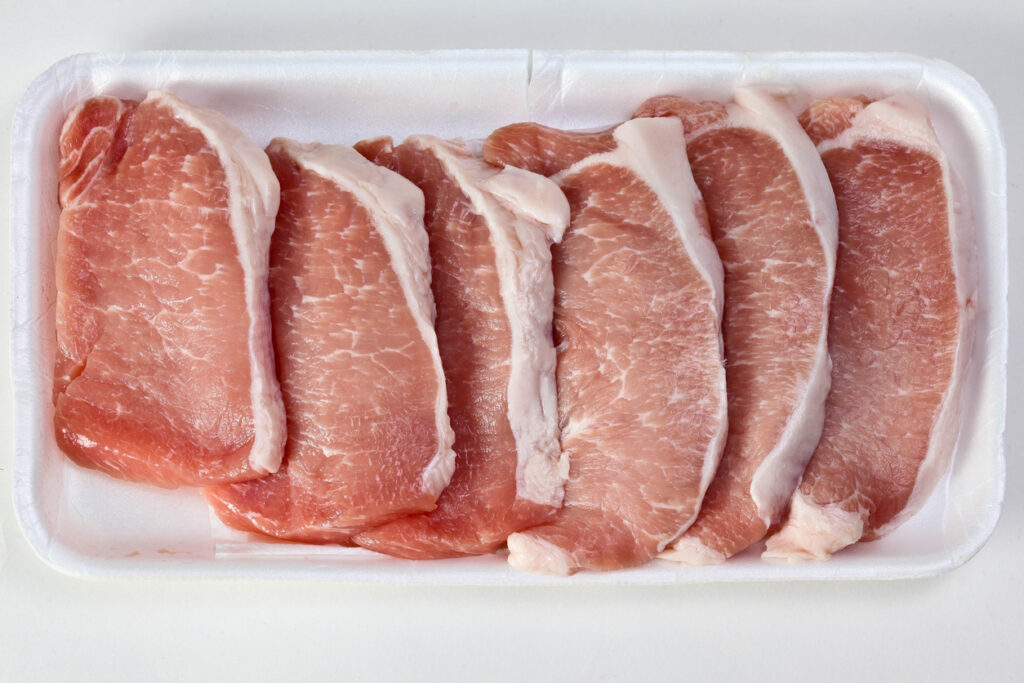
Ractopamine is a feed additive used in U.S. pork to promote lean muscle growth, kind of like swine steroids. While it’s approved in the U.S., over 160 countries, including China, Russia, and all EU member states, have banned pork products containing this drug. Why? Because it’s been linked to increased heart rate and behavioral changes in both animals and potentially humans. So while Americans are firing up their grills with bacon-wrapped everything, others are like, “No thanks, we’ll pass on the chemically enhanced pig.” It’s the food equivalent of showing up to a potluck with mystery meat and hoping no one asks questions.
8. U.S. Bread – Banned in Singapore for Azodicarbonamide (Yes, That’s a Word)
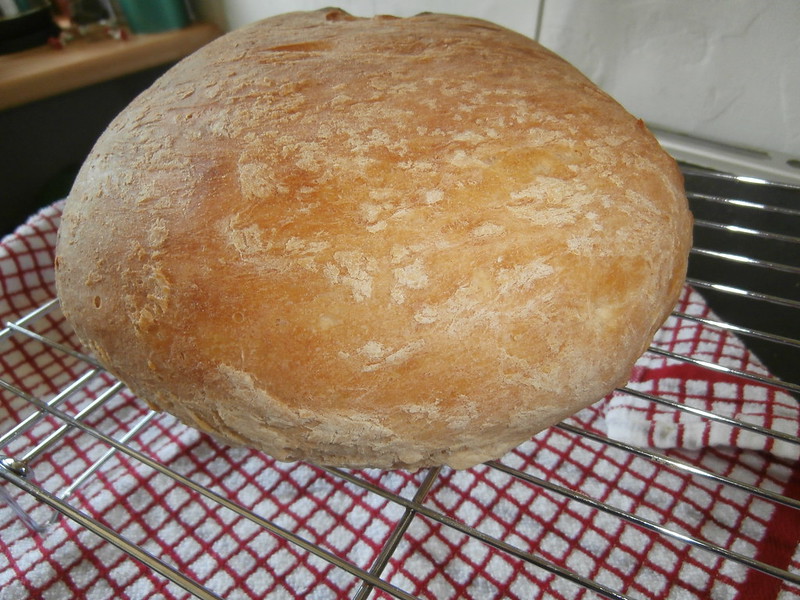
Azodicarbonamide (ADA) is a chemical used to make dough rise faster, and yoga mats stretch better. That’s right, it’s a dual-use chemical found in both U.S. bread and workout equipment. In countries like Singapore, using ADA in food can result in a hefty fine and even jail time. The European Union has also outlawed it due to concerns about potential respiratory and allergic reactions. Meanwhile, Americans continue to munch on their fluffy sandwich bread, blissfully unaware of its gym-grade additives. If your loaf can double as a Pilates prop, maybe it’s time to read the label.
9. Instant Mashed Potatoes – Off the Menu in Switzerland
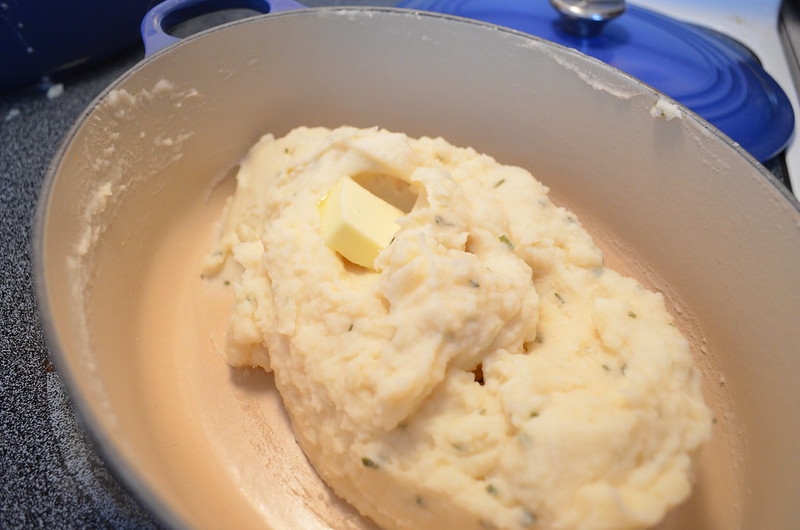
Instant mashed potatoes may be a weeknight dinner hero in the U.S., but the Swiss say “non merci.” The issue lies in additives like Butylated Hydroxyanisole (BHA) and Butylated Hydroxytoluene (BHT), preservatives used to extend shelf life but linked to cancer risks in animal studies. Switzerland, among other European nations, prefers their potatoes like their banking laws, clean and tightly regulated. Over there, if it comes from a powder, it’s suspect. In America, we’re out here stirring dehydrated spuds like we’re creating culinary magic. Turns out, your “homestyle” side dish might just be illegal across the Alps.
10. Coffee-Mate – Not Your International Cup of Cream
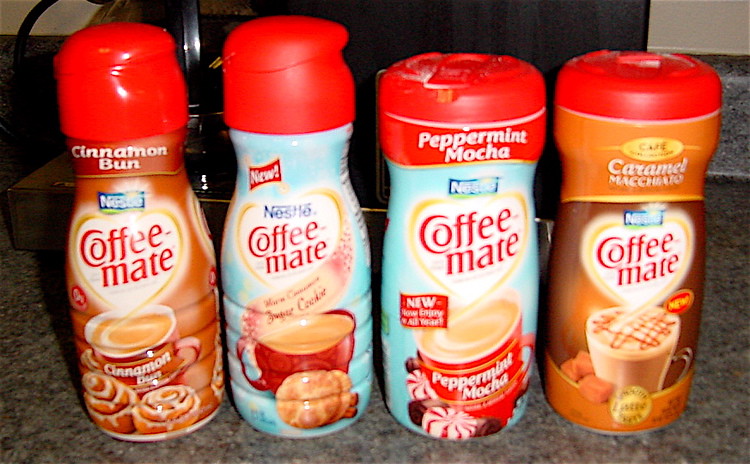
This popular non-dairy creamer is a staple in American breakrooms and a total outlaw in several countries. Why? It often contains trans fats in the form of partially hydrogenated oils, which are banned in countries like Switzerland, Austria, and even parts of Scandinavia. These oils are linked to heart disease and were phased out in the U.S. by 2020, but older formulations or knockoffs can still sneak through. Meanwhile, Europeans are over there swirling real cream into espresso like sophisticated dairy royalty. Coffee-Mate may be convenient, but elsewhere it’s treated like a tiny, plastic cup of cardiovascular sabotage. Your morning cup could be more scandalous than you think.
11. American Cheese – Processed, Plastic, and Prohibited
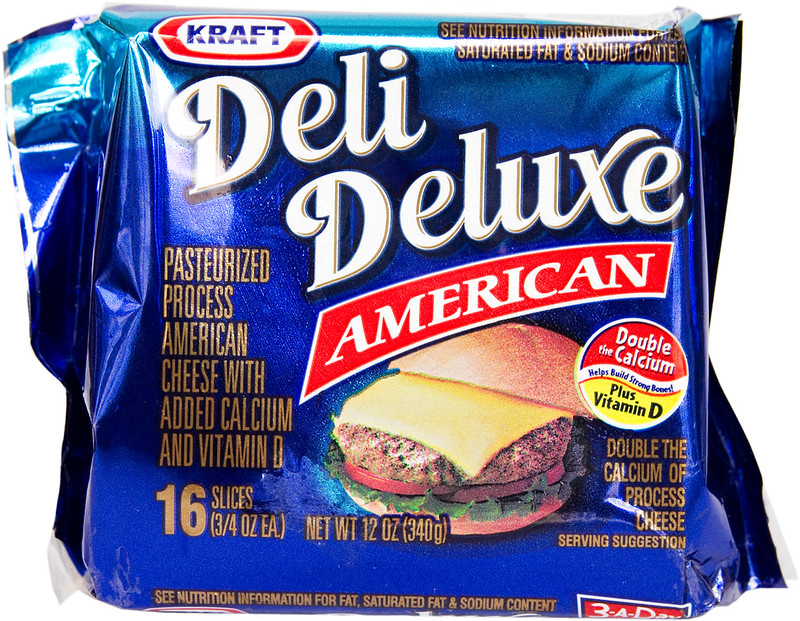
That neon-orange slice on your burger? Other countries call it “processed cheese product” and many don’t allow it at all. Countries like Switzerland and Norway have food purity standards that essentially say “this ain’t cheese.” American cheese contains emulsifiers, preservatives, and other non-dairy fillers that help it melt like magic but stray a bit too far from the cow. Meanwhile, Europeans are over there hand churning Camembert and judging us silently. In the U.S., we slap it on everything from grilled cheese to nachos without blinking. Elsewhere, it’s considered more science experiment than dairy delight.
12. Pop-Tarts – Too Sweet to Be Legal (Literally)
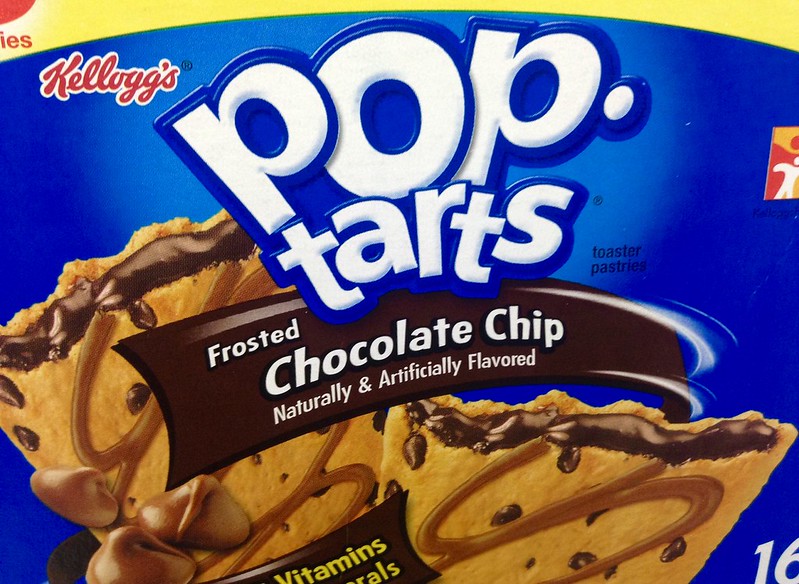
Pop-Tarts are the poster child of American breakfast rebellion — flaky, sugary, and totally shelf-stable for years. But in places like Norway and the UK, some flavors are banned due to artificial dyes and sky high sugar content. The U.S. version contains ingredients like Yellow 6 and Red 40, which have been linked to behavioral issues and are restricted or banned in other countries. Americans say “nostalgic treat”; others say “toxic pastry brick.” Meanwhile, the rest of the world wonders why we think dessert counts as breakfast. If your toaster pastry is brighter than your future, it might be illegal abroad.
If you like or found this story helpful, please give it a “thumbs-up”. If you would like to add something or reach the Editor, please add a comment. From all of us at Fetch, Thank you.


